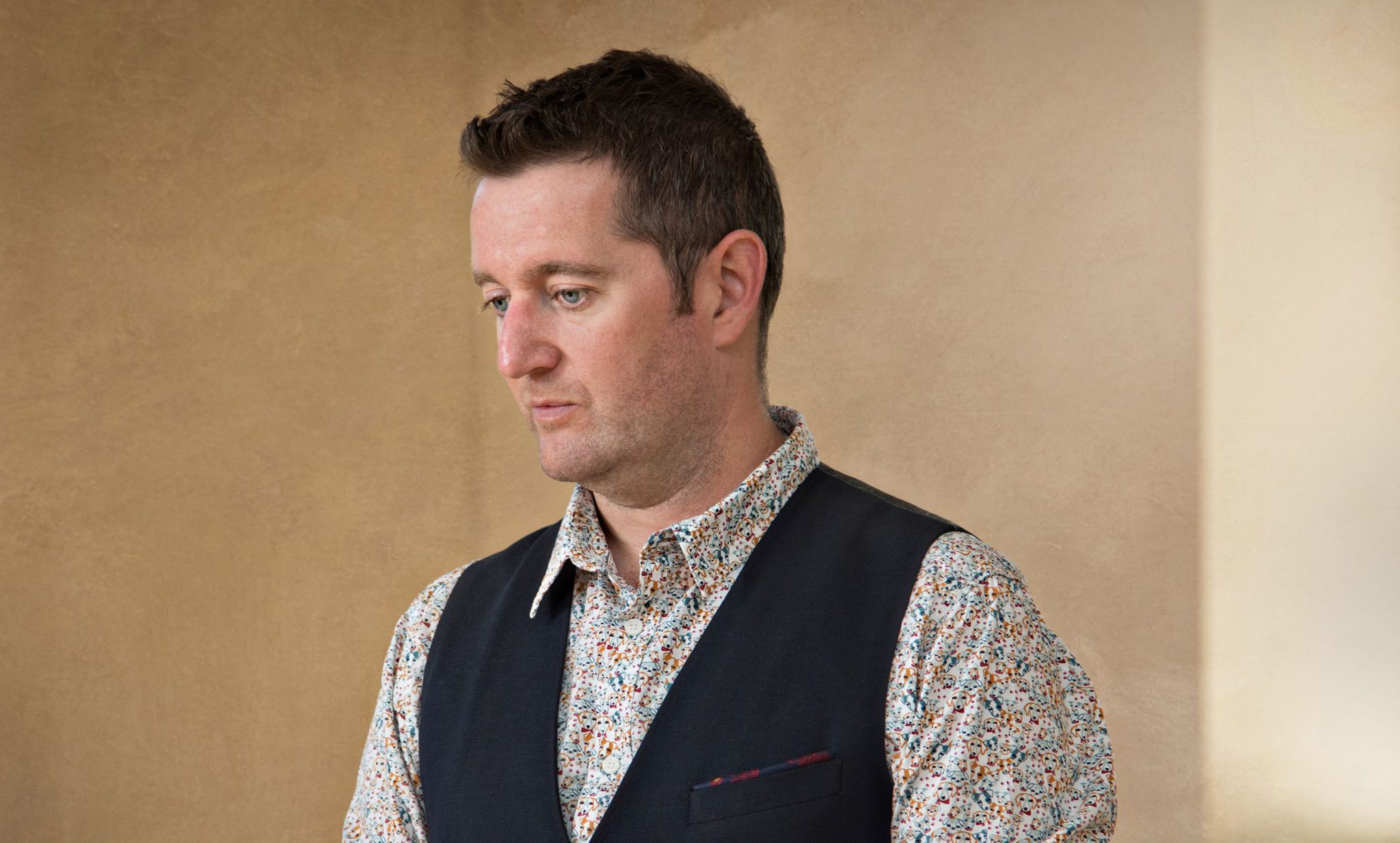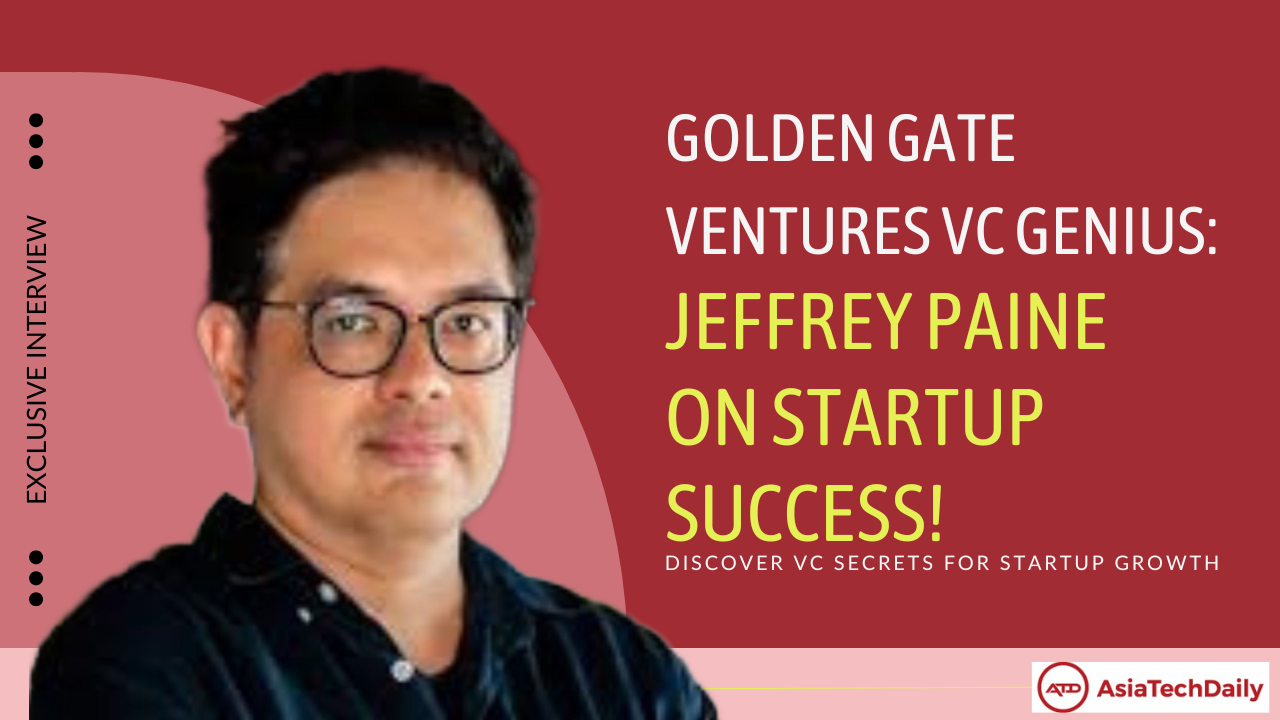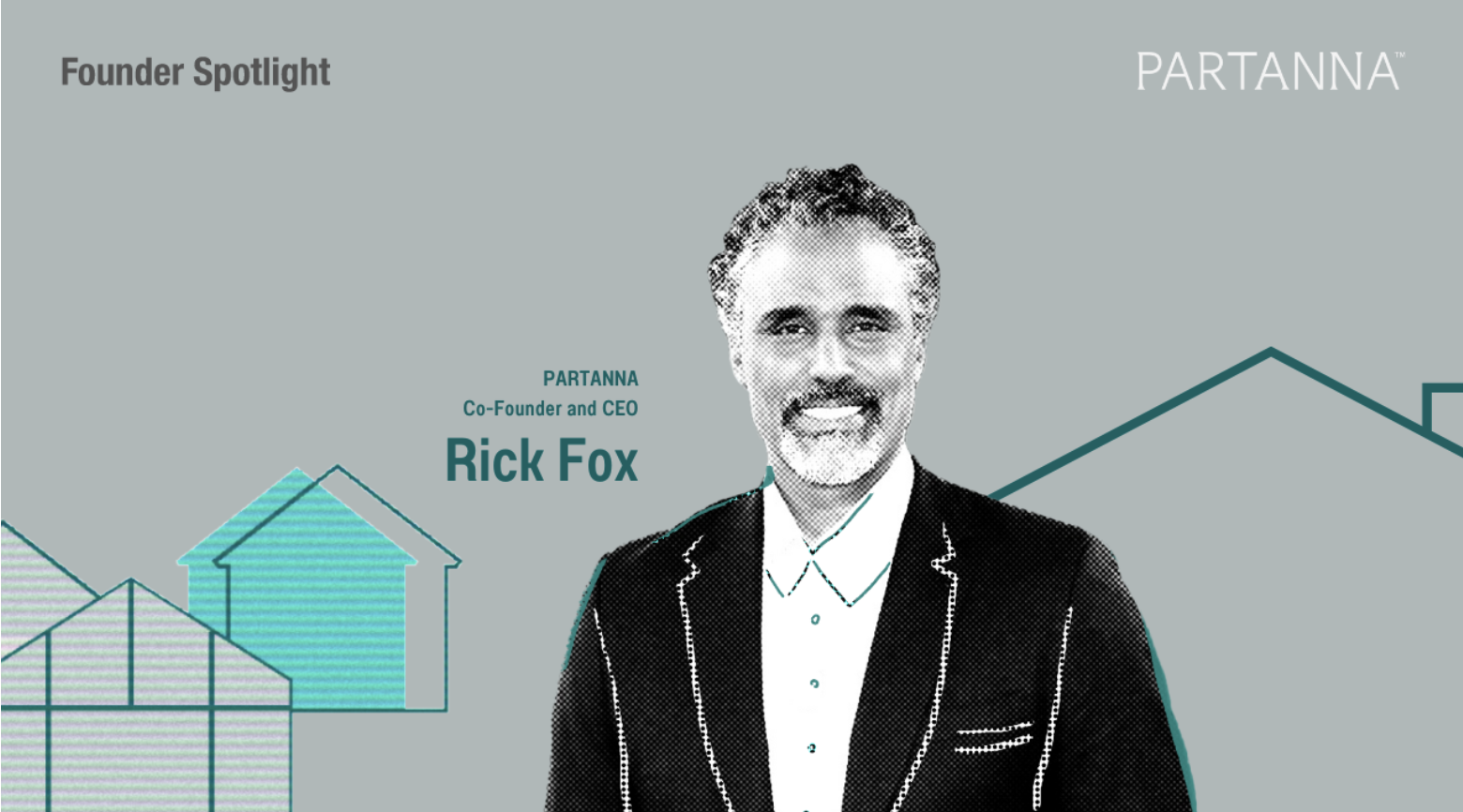AsiaTechDaily – Asia's Leading Tech and Startup Media Platform

How Pete Trainor CEO Of Vala Health Built A World-Class Online Telemedicine Platform?
Pete Trainor is a CEO, Designer, Author, Technologist, and Mental Health Campaigner. Pete is the bestselling author of “Human-Focused Digital,” and CEO of international healthcare provider Vala Health focused on delivering primary care, using ethical applications of data-driven technology.
He talks about creative and social technologies, data, AI, and the physiological and psychological effects on their audiences.
His bestselling, book “Human-Focused Digital,” takes a philosophical look at technology and design, challenging us to look inwardly at the self when designing future technologies.
Over the last three years, Pete has helped to pioneer an entirely new approach to Ai focused products, one that looks at ‘self-evolving systems’ and ‘minimum viable personality’ to help solve societal and human issues.
He was voted as one of the 5 most influential people in the British digital industry in the Econsultancys 2017 industry report.
He has a very simple philosophy: Don’t do things better, Do better things.
In an exclusive interview with AsiaTechDaily ,Pete says:
“Know when to quit.” Which sounds negative, but can also be a positive. We should all have an exit plan for our business and ourselves. Answer this question: “In which situation do I have to leave this job, even if it is my own business?”
If you can’t be great or famous or popular in a wide market, try to find a niche market and be the first one there.
I enjoy what I do. If I didn’t enjoy what I do, I wouldn’t be able to do it to the best of my ability, and that would affect everyone that relies on me. I have a great family who believes in me, that helps. I try to strike a good balance between work and life. I also enjoy hearing feedback from the team members and the audience we serve at Vala. When you hear you’re doing good things (and bad things which can be improved on), then you know you’ve got things right, and also how you can continuously evolve.
Read on to know more about Pete Trainor and his journey.
Please tell me about your personal background, and What motivated you to get started with your company?
Pete Trainor: I started working in 1996 in data-driven design and technology after I left school. I was an apprentice in a digital design department, and I was lucky enough to find something I loved doing. I have always been driven by enthusiasm and hard work. My dad had a tremendous work ethic, which I saw as a kid when I was growing up. So the one thing I recognize in my journey is that I worked hard at something. I don’t think I’m the smartest person in the room, or the most creative, or talented, but I have made up for that by putting in lots and lots and lots of hours and looking at things from different directions until I got the right answers. When I met the founders of Vala Health, I think they recognized in me a work ethic, desire to disrupt, and a real hunger to make a difference.
What is your current main product, and can you share any previous product pivot story to the current product?
Pete Trainor: Vala is an online telemedicine platform. We provide doctors appointments to our members over screens rather than in person. We use data and smart technology to try and enhance the experience for both our patients and our clinical team. Because it’s health-driven as much as it is technology or market-driven, we’re continuously pivoting. Every week we might need to pivot our approach to cope with a new pandemic or health trend. The technology platform we’ve built must be flexible enough to cope with pivots.
How much money have you raised in total so far? When was the recent funding round?
Pete Trainor: At the moment, Vala has been entirely bootstrapped by the founders and became profit-generating very quickly. We had a revenue goal in mind, which we would then use to raise a significant amount more from investors because we’d proven the business model. We’re currently in the process of raising $2.8M from both private investors and our members. It values the business at just over $15M, and in the next 18 months, we plan to triple that valuation.
I think it’s important that founders and startups don’t get trapped in the fund-raising mindset. We’ve been led to believe that it must have raised a lot of capital for a business to be successful. That’s not true. It’s more important to prove your business model and understand your market first. Then fund-raising becomes infinitely more comfortable because you go into it with confidence rather than blind-faith and false promises to future shareholders.
What were the internal decision processes in determining when to begin fund-raising, and what were the logistics for this? And how many investors have you met so far, and how did you meet these investors and which channels worked best for you?
Pete Trainor: As I mentioned in my previous answer, we were determined to prove ourselves in the market and prove the business model could scale. That was the single most crucial decision. Since we’ve opened ourselves to investors, I’ve had contact with about 100 different investors and met with 10 of them. It’s vitally important that we find an investor or investors who understand our culture and want to be part of our journey.
If a business is driven solely by how much money they can raise, they focus on the wrong metrics.
What are the biggest challenges and obstacles that you have faced in the process of fund-raising? If you had to start over, what would you do differently?
Pete Trainor: It is finding an investor who understands us. Finding someone who wants to amplify the very best parts of our business, culture, and vision, rather than erode those values for short-term profit. Let us not forget that most investors are exactly that; investing. They want to profit for themselves, and that comes from finding businesses with a scalable and profitable business model.
What are your milestones for the next round? And what are your goals for the future?
Pete Trainor: By October, I expect to have invited our chosen investors to the company, and given them a 15% stake in the most exciting digital healthcare business on the planet.
We’ll work with the new investor to help our growth plans. Expand into new markets. When the business is stable and operating profitably in those new markets, we’ll do another fund-raise to value us at a significantly higher rate.
How have you attracted users, and with what strategy have you grown your company from the start to now?
Pete Trainor: We don’t think of them as users, we think of them as people who choose to interact with us. That’s a significant mindset change. If you treat everyone you engage with as a human, you’ll start on a stronger foot. Users are just numbers; they’ll come and go. Treat everyone with respect as a person, and they’ll stick with you and help you grow. We’ve attracted a lot of our current members through respect, and that respect encourages them to tell their friends, family, colleagues, and peers. The viral effect of business, like Vala, is powerful.
We’ve also done some very clever, very data-driven online marketing, which I can’t underestimate. When you find those first mavens using good online marketing tactics, they become the recruiters.
Which has been the best marketing software tool for the growth of your startup, and why?
Pete Trainor: We hired a good online marketing team. The tools they use are there to amplify their genius.
What do most startups get wrong about marketing in general?
Pete Trainor: I’ve run a lot of startups now, so I made a lot of mistakes. One of the biggest mistakes I’ve made in the past was assuming that you could spend a lot of money to buy or recruit your audience. The world doesn’t work like that. If you don’t have the tools in place for multi-level-marketing (member-get-member), then no amount of money solves the marketing challenge. Every one person you get to download and use your product can attract two more.
Also, focus on how you want someone to feel, not what you want someone to do. There’s a subtle difference between these that makes a big difference to the outcome.
How do you plan to expand globally?
Pete Trainor: We’re currently setting up a team in Australia. That’s an interesting territory for us because it gives us the bottom of the world to move up from. It’s also not quite as advanced in telemedicine as some other countries. Asia is also really fascinating because digital adoption in some markets there takes on a different trend. For example, I’m keen to increase our health advice via chat platforms. When you know what you want to achieve, that leads you to the markets.
What are the most common mistakes companies make with global expansion?
Pete Trainor: Going too fast and picking the wrong markets. We’re a healthcare provider, so we have to factor in ethics, and data-ethics into every decision we make. I think a lot of startups focus on the biggest markets, rather than the right ones – We’re very focused on the right ones, not the biggest ones.
How do you handle this COVID-19 outbreak situation for your company’s survival in the future?
Pete Trainor: We’re actually in the fortunate position that COVID-19 has made our business stronger. It’s shone a light on the power of online healthcare. The biggest risk we faced was not being able to cope with the added demand, but thankfully we had all the right pieces and people in place to be able to handle the traffic and growth.
What are the most common mistakes founders make when they start a company?
Pete Trainor: By definition, I think a founder is someone who is idealistic and visionary. They have an idea in their head, and they want the world to share in that vision and idea. The biggest mistake a founder can make is hanging on too tightly to that idea and vision. It has to be fluid, and they have to be willing to bring in new people to help evolve and change their vision.
Also, make sure you have a mentor. Someone who can tell you when you’re getting it wrong, and not just when you’re getting it right.
What’s the best advice you’ve ever received? And What advice do you have for someone who is interested in doing similar things like yours or in a similar direction?
Pete Trainor: The best advice was, “Know when to quit.” Which sounds negative, but can also be a positive. We should all have an exit plan for our business and ourselves. Answer this question: “In which situation do I have to leave this job, even if it is my own business?”
If you can’t be great or famous or popular in a wide market, try to find a niche market and be the first one there.
What are the top-three books or movies (TV series) that changed your life and why?
Pete Trainor: Tricky question because new books come and go from my life. But to this day, the three books that I learned a lot from are; My book. I wrote ‘Hippo – Human-Focused Digital’ in 2016 because I wanted to share some of my philosophies and thoughts on what technology ‘could be’ rather than what technology ‘is.’ Writing that book taught me a lot about myself, my visions, and also created something I am very proud of.
The second book I felt made a difference to the way I approached things was ‘Thinking, Fast and Slow’ by Daniel Kahneman. That book gave me an insight into human behavior that makes me strategize and design in a different way now.
Finally, I think everyone should have a storybook they can continuously go back and read that helps them escape reality. Being the leader of a business can be tiring, stressful, and sometimes quite lonely. So find some escapism. I have many books I’ve gone back and read over the years that have helped me find escapism and jetted me off to another planet or world.
How do you keep yourself motivated every day?
Pete Trainor: I enjoy what I do. If I didn’t enjoy what I do, I wouldn’t be able to do it to the best of my ability, and that would affect everyone that relies on me. I have a great family who believes in me, that helps. I try to strike a good balance between work and life. I also enjoy hearing feedback from the team members and the audience we serve at Vala. When you hear you’re doing good things (and bad things which can be improved on), then you know you’ve got things right, and also how you can continuously evolve.
What are the top- three life lessons that you want your (future) sons and daughters to know?
Pete Trainor: I have a daughter who is 7, and a son who is 10. I encourage them to be themselves. I worry about generations who look at social media and ‘influencers’ as some ideal. That’s not reality. They have to be themselves and be comfortable with the good and the bad parts of themselves.
Learn to accept failure. That’s important. It hurts, it keeps me awake at night, and I’m sure on occasion it will keep my children awake at night. The worry that something didn’t go well or the way it should have gone. But if you can learn from those mistakes, you solve and evolve both in business and life.
Finally, I would like them to know that success is something they ‘feel’ not necessarily achievable. Other people might have a view of what success looks like, but often what makes someone feel like they’ve succeeded isn’t how much money they’ve made, or how many views or downloads they achieved, it’s the one life they touched. That one life can be the greatest measurement of success any of us achieve.
What would you like to be remembered for?
Pete Trainor: I try not to think about that. I’ll let other people decide how I’m remembered. I’m sure they have a very different view of me than I have of myself.
You can follow Pete Trainor here.
Are you looking to secure investment for your startup or a keen startup enthusiast, keep an eye on our interview section.
Follow Asia Tech Daily to know about the innovative startups and how they are revolutionizing the ecosystem.





